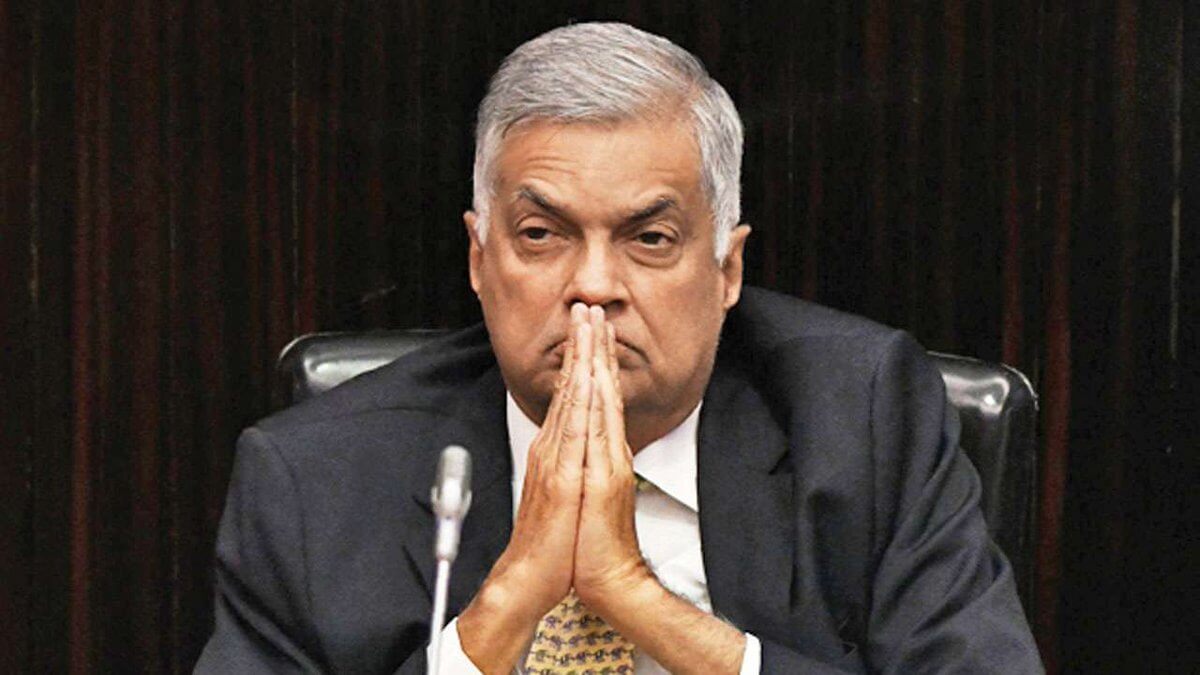Sri Lankan Prime Minister (PM) Ranil Wickremesinghe expressed his interest in discounted Russian oil amid reports of fuel in the country dropping below 4,000 tonnes.
In an interview with Russian state-owned news site TASS, Wickremesinghe revealed that Sri Lanka already has Russian Siberian Oil, 90,000 tonnes of which was delivered in May, and is now finalising other commercial proposals. He also requested Russian deliveries of fertilisers, fuel, and food, including wheat grains, from Russia.
Special Statement made by Prime Minister Ranil Wickremesinghe in Parliament today:
— DailyMirror (@Dailymirror_SL) July 5, 2022
1/3 pic.twitter.com/UaflT7cyBs
He expressed hope that the plan to secure Russian goods would become more clear after Education Minister Susil Premadjayanta’s upcoming trip to Moscow. The Minister will lead a delegation that includes former Sri Lankan Ambassador to Russia Saman Weerasinghe and will hold high-level discussions with Russian officials from July 11 to 15.
Wickremesinghe added that Western sanctions have not impacted Sri Lanka-Russia ties, noting that “most countries in the Indian Ocean region trade with Russia and maintain political relations.” In this regard, he also questioned whether these sanctions are ‘working.’
The Sri Lankan PM also addressed the recent controversy wherein a Moscow-bound Aeroflot plane was detained in Sri Lanka after a Commercial High Court had barred the plane from taking off. He said that the plane was grounded without the government’s consent as it was a private dispute between Aeroflot and an Irish company from whom the plane was leased. In this regard, the Sri Lankan PM said he does not envision any recurrence of such issues, despite Aeroflot suspending flights to the country.
The Russian Foreign Ministry summoned Sri Lanka’s Ambassador to Moscow Janitha Abewickrema Liyanage and expressed protest over the detention of an Aeroflot plane in Sri Lanka. Read the full story here https://t.co/LevPF8jSXX
— Easwaran Rutnam (@easwaranrutnam) June 4, 2022
via @colombogazette #Srilanka #lka #Russia #Aeroflot
Wickeremesinghe also noted that he is not aware of President Gotabaya Rajapaksa’s alleged plans to visit Russia, but said, “I don't think he's planning any trips now, because because of the crisis, everyone is still staying in the country.”
There are suggestions that Rajapaksa plans to visit Moscow after Daily Mirror reported that the president wrote to his Russian counterpart Vladimir Putin requesting assistance to purchase oil. The pair are expected to speak over the phone in the coming days.
Sri Lanka 🇱🇰
— James Melville (@JamesMelville) June 29, 2022
Fuel shortage chaos continues.
Motorcyclists waiting for fuel at a petrol station.pic.twitter.com/yFgCfk4hwN
Describing the economic situation of Sri Lanka, Wickremesinghe said the previous government’s decision to reduce tax rates resulted in the loss of $40 billion in revenue. This was further exacerbated by the COVID-19 pandemic and its resultant impact on its tourism industry, he added. He noted that there are several other reasons for its foreign reserve crisis as well as food, fuel, and medicinal shortages, describing it as the “worst crisis our country has faced in modern history.”
When asked about the steps that must be taken to return to normalcy, the PM said the government is in talks with the International Monetary Fund (IMF) to revive Sri Lanka’s foreign currency reserves, which he said would allow it to purchase fertilisers and critical medicines. In this regard, he thanked India and China for their support during this crisis.
Wickremesinghe asserted that he expects the country to “return to normal” next year but stressed that it will take at least three years to “completely overcome” this situation.
"India has had to limit the loan assistance that they have given to us", says Sri Lanka PM amid the Russia- Ukraine conflict https://t.co/XvsEQ4ZMWR
— Sidhant Sibal (@sidhant) July 5, 2022
The interview with TASS comes amid a worsening economic crisis in Sri Lanka, with unprecedented fuel shortages. On Sunday, Power and Energy Minister, Kanchana Wijesekera said that are remain only 4,000 tonnes of petrol reserves, enough for just a day.
The PM has previously said that the shortage will last till July 22, when the next shipment of oil is expected. He has said, however, that the government has reached an agreement to ensure regular supply for the coming four months.
These shortages have disrupted several essential services. For instance, according to the All Island Private Bus Owners’ Association, the number of operational vehicles will be cut down by 5%.
This has also impacted the transport and delivery of produce and medical supplies. Government and banking officials have also been asked to limit their attendance. Furthermore, on Monday, the Sri Lankan Education Ministry declared a week-long holiday due to fuel shortages and power cuts.

